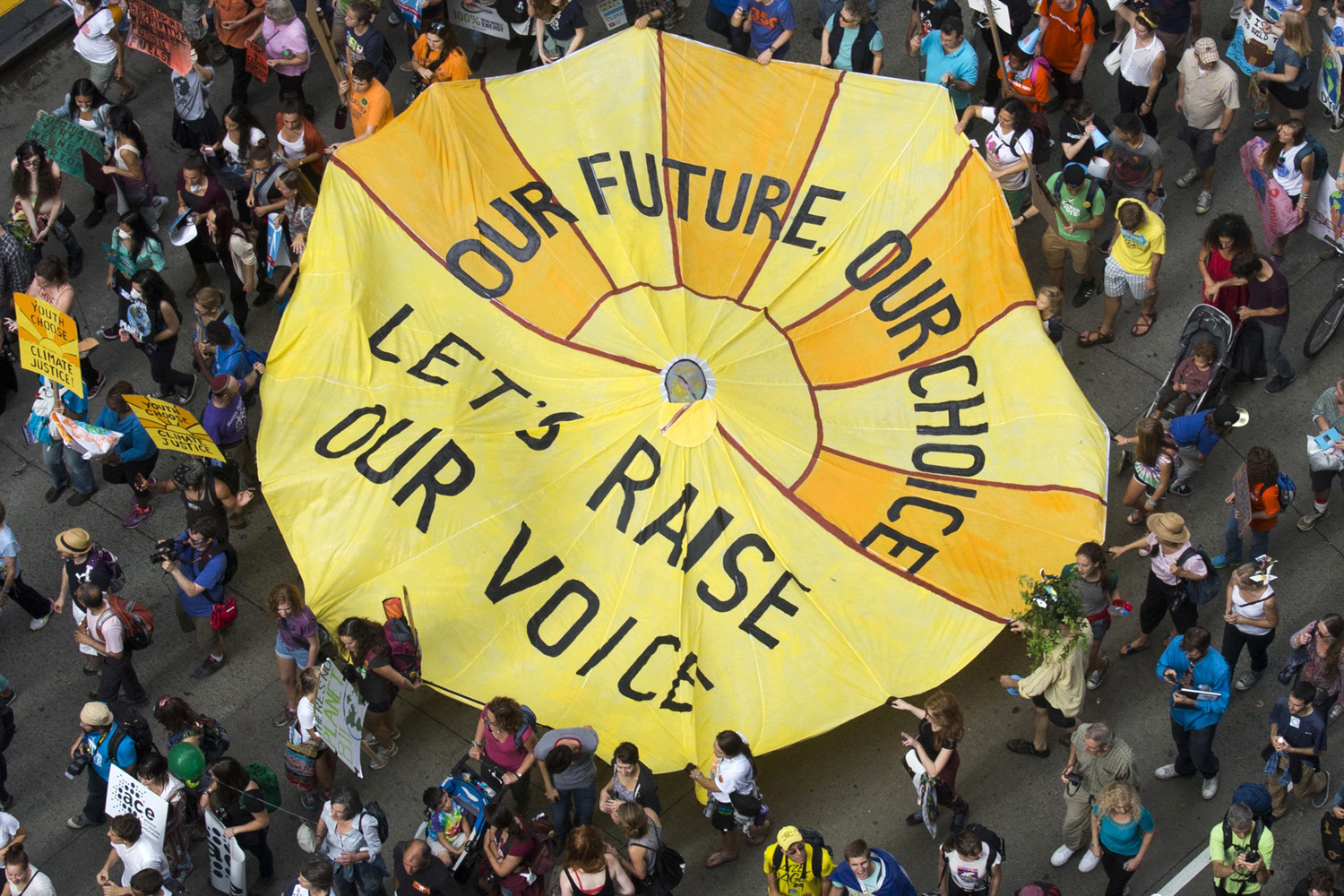
The hundreds of thousands of protesters who marched through New York City on Sept. 21 made one thing very clear: climate change is no longer just an environmental issue. The People’s Climate March was an effort to demonstrate that there is popular will to push for action on climate change, for practical reasons that go well beyond just saving the planet. “People are making the argument in the streets,” says Naomi Klein, a Canadian activist and author of the new book This Changes Everything: Capitalism vs. the Climate.
That argument is finally reaching the ears of some world leaders. At the U.N. climate summit on Sept. 23, more than $200 billion was promised to support clean energy and climate resilience among developing countries. “Our citizens keep marching,” said President Barack Obama in a speech at the summit. “We cannot pretend we don’t hear them.”
There’s just one problem. The country whose actions will do the most to decide the future of the climate is the one country that is the least responsive to public will: China.
If preventing major climate change required only developed nations like the U.S. to cut carbon, we might be fine. Greenhouse-gas emissions in most rich nations have been falling in recent years, the product of slower economic growth and a shift to cleaner sources of energy.
(WATCH: Incredible Timelapse of The Earth Changing Over 3 Decades )
But the vast majority of carbon being emitted over the coming decades will originate in rapidly growing developing nations—and China most of all. Already China is responsible for 28% of global carbon dioxide emissions, more than the U.S. and the European Union combined. Sixty percent of the growth in global emissions since 2002 is due to China. And while the U.S. has still emitted the most carbon historically since the industrial era began, it won’t be long before China takes that title as well. The argument that Beijing has long used—that climate change is the sole responsibility of the West—will no longer hold water.
To its credit, China has made real efforts in recent years to slow the growth of its carbon emissions and clean up its energy supply. China is the largest producer of solar and wind power on the planet, and when you include hydropower, renewables make up 20% of its energy mix—higher than in the U.S.
But that progress is being more than offset by a single trend: growing consumption of coal. Coal-fired power plants are the single biggest contributor to man-made climate change, and in 2012, China consumed nearly 4 billion tons of coal—almost as much as the rest of the world combined. China is projected to add the equivalent of a new 500-MW coal-fired power plant every 10 days for the next decade, at a time when countries like the U.S. are moving to reduce coal consumption. If that happens, the world’s slim chance of averting potentially dangerous global warming will vanish.
So it wasn’t encouraging that Chinese President Xi Jinping chose not to attend the U.N. climate summit, sending Vice Premier Zhang Gaoli to address the international body instead. (The new Indian Prime Minister Narendra Modi—whose country is also on a pace to significantly add to climate change—was also a no-show.) Zhang said that by 2020, China would aim to reduce its emissions of carbon per unit of GDP by 45% compared with 2005 levels, and that the country wanted to have its total emissions peak “as soon as possible.” But that won’t be enough.
Of course, the reality is that no country is truly doing enough to avert warming. Despite the growth of renewable-energy sources like wind and solar, global emissions of greenhouse gases jumped by 2.3% in 2013 to record levels. This summer—the months of June, July and August—was the hottest on record for the globe, and 2014 is on pace to become the hottest year overall. We’re losing the fight.
The protesters who came out to the People’s Climate March in New York—and to the thousands of other events held that day around the world—will keep pushing their leaders to do much more. In China, where something like the climate march could never have happened, citizens won’t have that opportunity. But Chinese leaders should still be listening. Like it or not, they have a growing responsibility to deal with one of the biggest challenges the world faces. As Obama said at the U.N.: “Nobody gets a pass.”
More Must-Reads from TIME
- Why Trump’s Message Worked on Latino Men
- What Trump’s Win Could Mean for Housing
- The 100 Must-Read Books of 2024
- Sleep Doctors Share the 1 Tip That’s Changed Their Lives
- Column: Let’s Bring Back Romance
- What It’s Like to Have Long COVID As a Kid
- FX’s Say Nothing Is the Must-Watch Political Thriller of 2024
- Merle Bombardieri Is Helping People Make the Baby Decision
Contact us at letters@time.com